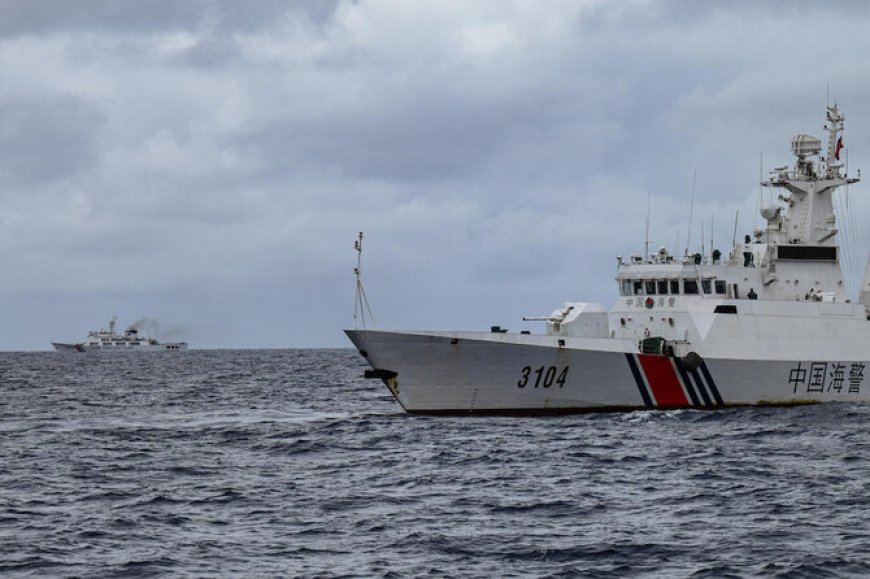US and China Hold High-Level Military Talks Amid South China Sea Tensions

In a rare and significant development, high-ranking military officials from the United States and China engaged in direct talks to address escalating tensions in the South China Sea. The discussions, held via video conference, marked the first such meeting since China suspended military communications with the US in 2022.
The talks, which took place on Tuesday (China time), featured Samuel Paparo, Commander of the US Indo-Pacific Command, and Wu Yanan, head of the Chinese army’s Southern Theater Command. The primary focus was on recent confrontations in the South China Sea, where China's assertive actions have drawn international scrutiny and heightened regional tensions.
During the meeting, Paparo expressed serious concerns about what he termed as “dangerous, coercive, and potentially escalatory tactics” by the Chinese military. The US official highlighted recent unsafe interactions involving US allies and urged the People’s Liberation Army (PLA) to reconsider its approach in the contested waters. Paparo emphasized the importance of maintaining open lines of communication to clarify intentions and mitigate the risk of misperception or miscalculation.
The South China Sea, a crucial maritime region rich in resources and strategic importance, has been a flashpoint for regional disputes. China claims nearly the entire area, despite competing territorial claims from neighboring countries, including the Philippines, and an international court ruling that deemed China’s expansive claims as legally baseless. Recent incidents, such as the alleged ramming of a Philippine vessel by a Chinese coast guard ship, have intensified the conflict.
In response, the Chinese readout of the talks indicated that Wu and Paparo engaged in an “in-depth exchange of views” on various issues of mutual concern. Wu’s command is responsible for overseeing Chinese military activities in the South China Sea and has been at the center of recent high-profile confrontations with Philippine ships.
The discussions come in the wake of a significant diplomatic visit to China by Jake Sullivan, the US National Security Adviser, last month. Sullivan’s visit marked the first such high-level meeting between the two nations since 2016. During his visit, Sullivan and Chinese officials, including Zhang Youxia, a senior army leader, discussed the importance of freedom of navigation in the South China Sea and stability in the Taiwan Strait.
Zhang, however, underscored the sensitivity of the Taiwan issue, describing it as a “red line” in US-China relations. He urged the US to cease military collusion with Taiwan, stop arms sales to the island, and refrain from spreading what China perceives as false narratives. Zhang also called for enhanced communication and cooperation between the two militaries to manage their shared responsibilities as major global powers.
These recent developments highlight the complex and often contentious nature of US-China relations, particularly in the context of military engagements and regional security issues. The high-level dialogue signals an ongoing effort to manage and de-escalate tensions, though significant challenges remain.













































